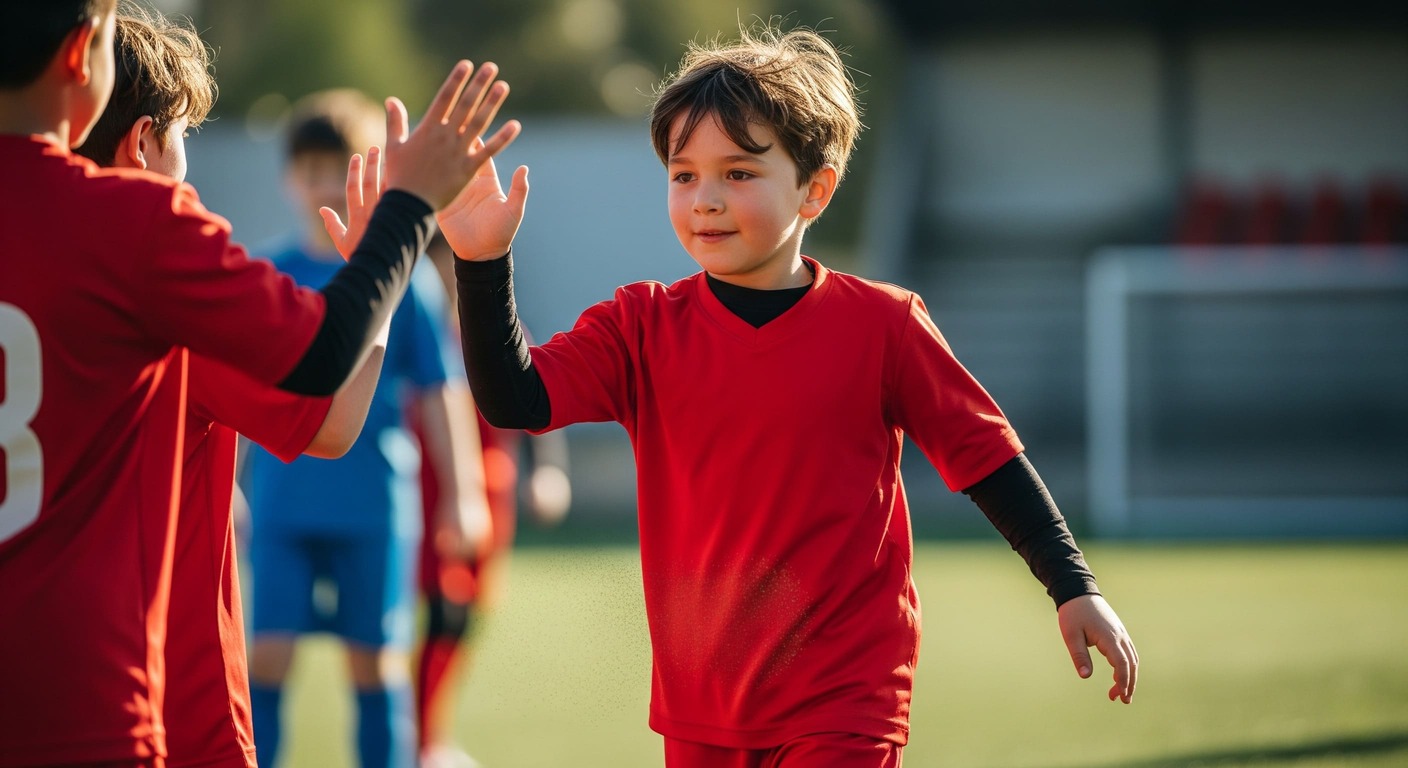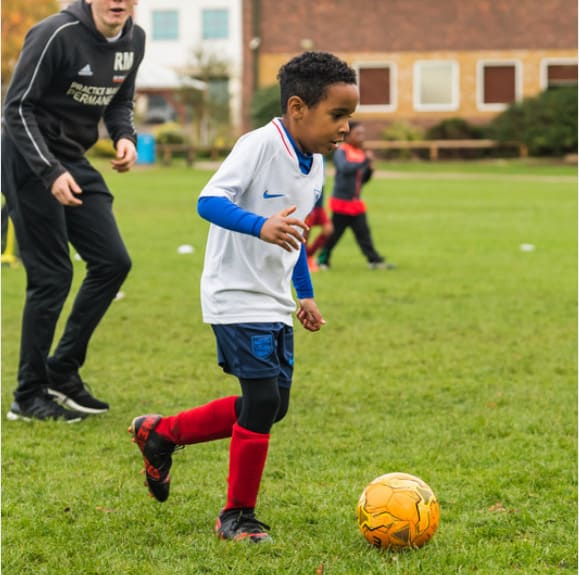Sports Parenting: Winning and Losing with Grace
Now that weekend games are back on the calendar, families across the USA are filling sidelines with applause and encouragement. From youth soccer matches to structured training with We Make Footballers, children are learning to pass, dribble, fall, and rise again. These moments, whether it’s a first assist or a missed shot are part of a bigger picture. Helping young athletes navigate both joy and challenge teaches lessons that extend far beyond the pitch. Graceful wins and resilient losses build character. Here’s how parents can support their child’s journey with calm encouragement and long-term values.
How to Teach Your Child to Win with Grace
Scoring a goal or making a brilliant move often brings cheers from every corner—but guiding your child to respond with humility shapes deeper habits. A simple high five to a teammate or a shared smile says more than a victory dance. At We Make Footballers, every drill is infused with positive behavior modeling, reminding players that team success matters most. Quiet confidence helps children focus on improvement rather than attention. A small gesture, like a thumbs-up or hand clap for a group effort, reinforces joy in participation - not just in results.
Teaching Humility in Sports
True humility begins with reflection. After a session or game, ask your child what they learned, not just what they achieved. Encourage them to recognize another player’s effort or thank their coach. This makes kindness a habit, not an exception. Phrases like “I noticed how you stayed calm under pressure” or “I liked how you helped your teammate” turn your praise into guidance. Over time, this builds a sense of team spirit, reinforcing the idea that growth and support matter more than individual accolades.
How to Help Your Child Lose with Grace
Setbacks happen. Whether it’s a missed penalty or a tough game, children will feel disappointment and that’s okay. The goal is to help them process it constructively. After the final whistle, begin by acknowledging emotions. Then steer the conversation toward learning. Ask what felt hard, what they could try differently, and what they noticed about the other team. At We Make Footballers, coaches regularly include cool-down chats and positive wrap-ups to normalize feedback and reflection. These small rituals help children develop mental resilience and stay motivated across both wins and losses.

Respectful Celebration
Celebration should match the moment. Instead of loud noise or showy gestures, guide your child toward respectful joy. A quiet nod, a handshake, or a short clap line for both teams builds shared acknowledgment. Sportsmanship includes recognizing the effort of others, even competitors. Encourage your child to cheer teammates and thank opponents, even after intense matches. These micro-moments of mutual respect help build a lifelong foundation of dignity and community.
Building a Spiritual Foundation
Soccer isn’t just about agility or tactics, it’s a space for gratitude, patience, and focus. A simple pause before practice to say thanks for the opportunity to play can shift a child’s mindset. Invite your child to reflect on what they enjoy about training or what they appreciate about their team. These rituals aren’t tied to any specific belief but help center the experience with intention. At We Make Footballers, many sessions begin and end with gratitude for effort, kindness, and safe play. This helps children carry emotional balance from the pitch into everyday life.
Parenting Athletes: Key Strategies for Support
Parents play a central role in shaping their child’s relationship with sport. Support doesn’t mean giving all the answers—it means showing up with consistency and listening. Praise effort, not just outcome. Celebrate the courage it takes to show up, to try again, and to support teammates. When your child has a tough day, ask questions that invite reflection, not judgment. Phrases like “What did that feel like?” or “What’s something you want to try next time?” keep the dialogue open.
We Make Footballers offers structured sessions in small groups, no more than ten children per coach, so every player receives focused attention. All sessions are run in safe, nut-free spaces with qualified, background-checked coaches and first aid always available. Consistency builds trust. So do routines at home: warm-up stretches before class, encouraging notes in the bag, or post-game fist bumps that say, “I’m proud of your effort.”
Little League Soccer Coaching Example
A session at We Make Footballers for younger players often starts with a warm-up circle where each child highlights a teammate’s strength. It sets a tone of mutual support. This might be followed by a dribbling relay, where players call out a color while navigating cones, boosting decision-making as well as motor skills. Then comes a mini-match on a small pitch, where the focus is on sharing the ball and praising effort. The session ends with a reflective chat: players name one thing they did well and one thing they’d like to improve.
These consistent structures help children internalize values like collaboration and respect. Coaches model soft praise, peer acknowledgment, and controlled energy—even when excitement runs high. Every drill is wrapped in a safety-first framework, with an emphasis on inclusion. Children cheer not only for goals but for good attempts. Parents often comment on how this positive reinforcement boosts their child’s confidence on and off the pitch.
Join us now and watch character grow.



